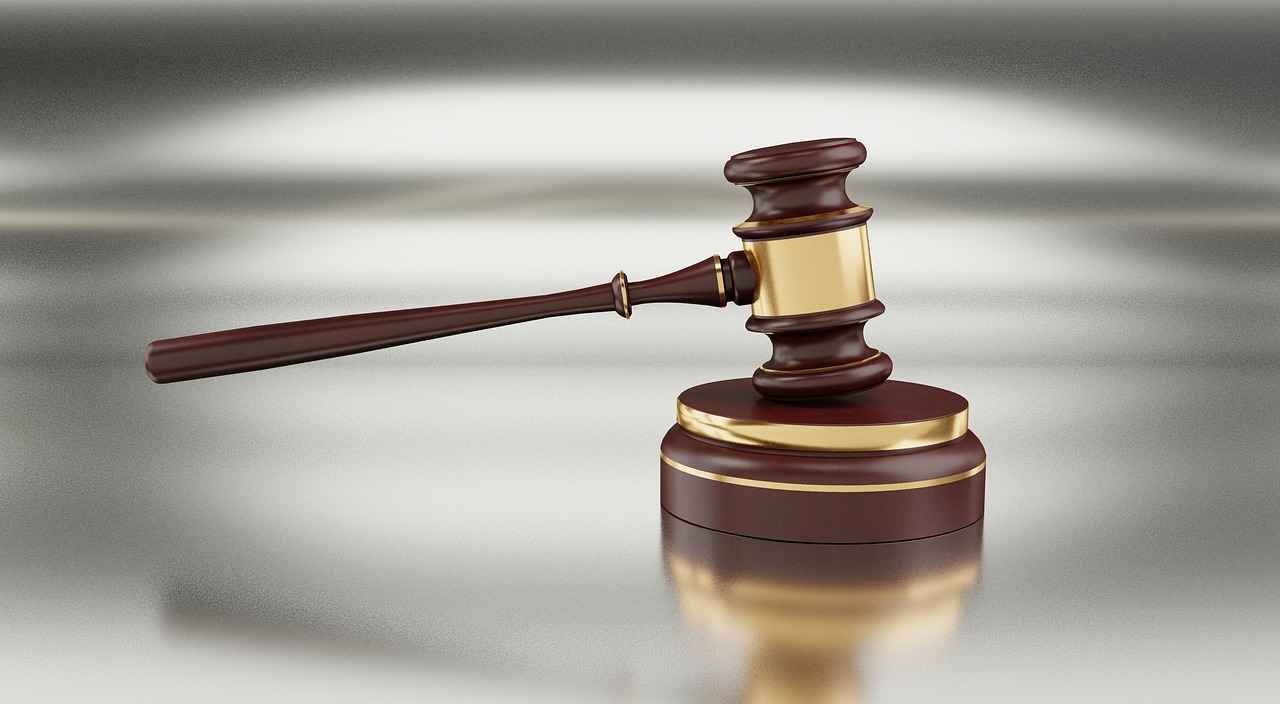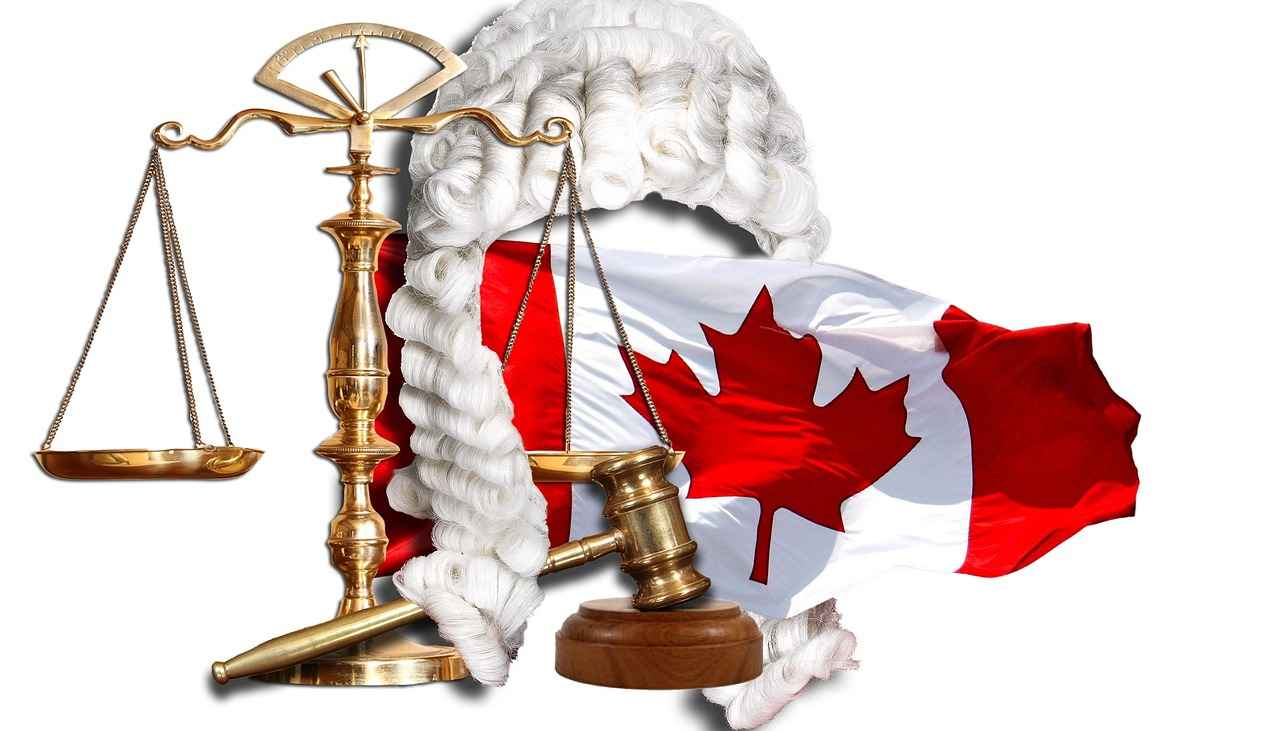This article provides a comprehensive guide to finding qualified and trustworthy lawyers in Norfolk, Virginia, covering various legal case types and offering practical tips for selecting the right attorney.
Understanding Personal Injury Cases
Personal injury cases are among the most prevalent legal disputes in the United States. Individuals often seek compensation for physical or emotional harm caused by the negligence or intentional actions of others. When searching for a personal injury lawyer, consider their track record of successful settlements and verdicts. Look for attorneys who specialize in personal injury law and have experience with cases similar to yours. Additionally, client reviews and testimonials can provide insight into their reputation and effectiveness.
Medical Malpractice: What You Need to Know
Medical malpractice is a specialized area of personal injury law involving negligence by healthcare professionals. To find a competent medical malpractice attorney, look for those with a background in healthcare or medical law. It’s essential to verify their credentials and understand their approach to handling complex medical cases. Many successful attorneys offer free consultations, allowing potential clients to gauge their expertise before making a commitment.
Breach of Contract: Legal Implications
Breach of contract cases arise when one party fails to fulfill their obligations under a legally binding agreement. For these disputes, it is crucial to find an attorney who specializes in contract law and has experience with the specific type of contract involved. Check their success rates and seek referrals from trusted sources. A good attorney will also help you understand the potential outcomes and strategies for resolving the dispute.
Navigating Property Disputes
Property disputes can involve various issues, including boundary disputes, easements, and landlord-tenant disagreements. When searching for an attorney experienced in property law, consider their familiarity with local regulations and their negotiation skills. Look for lawyers who have successfully handled similar cases and have a good understanding of property rights. Client reviews can also provide valuable insights into their effectiveness in resolving disputes.
Landlord-Tenant Disputes: Key Considerations
Landlord-tenant disputes often involve evictions, lease agreements, and security deposits. To find the right representation, look for attorneys who specialize in landlord-tenant law and have a comprehensive understanding of local housing laws. They should be able to guide you through the legal process and help you understand your rights and obligations. Reviews from former clients can be instrumental in assessing their competence.
Defamation Cases: Libel and Slander Explained
Defamation involves false statements that harm a person’s reputation. Finding an attorney skilled in libel and slander cases is crucial for protecting one’s rights. Look for lawyers with a strong background in media law and experience in handling defamation cases. They should be able to assess the merits of your case and provide a clear strategy for pursuing legal action.
Employment Disputes: Types and Solutions
Employment disputes can include wrongful termination, discrimination, and wage issues. Identifying a lawyer with expertise in employment law is vital for navigating these complex cases. Seek out attorneys who have successfully represented clients in similar situations and understand both federal and state employment laws. Client testimonials can provide insight into their effectiveness and approach to resolving disputes.
Product Liability: Holding Manufacturers Accountable
Product liability cases hold manufacturers responsible for defective products that cause harm. Understanding this area of law is essential for consumers seeking justice. When searching for an attorney, look for those who specialize in product liability and have a proven track record of successful cases. They should be well-versed in the relevant regulations and able to navigate complex litigation processes.
Wrongful Death: Seeking Justice for Loved Ones
Wrongful death cases arise when negligence leads to a person’s death. Finding an attorney who specializes in these sensitive matters is crucial for grieving families. Look for lawyers who demonstrate compassion and understanding, as well as a strong history of successful wrongful death claims. They should be able to guide you through the legal process while respecting your emotional needs.
Class Action Lawsuits: When to Join Forces
Class action lawsuits allow groups of people to collectively sue for damages. Understanding the criteria for joining such cases can help individuals find appropriate legal counsel. Seek attorneys who have experience in class action litigation and can demonstrate past successes in similar cases. They should be able to explain the process and help you understand your rights as a member of a class action.
Criminal Law: Assault, Battery, and More
Criminal law encompasses various offenses, including assault and battery. Navigating the criminal justice system requires skilled legal representation to ensure fair treatment. When looking for a criminal defense attorney, prioritize those with a strong background in criminal law and a reputation for winning cases. They should also be knowledgeable about local laws and procedures.
Family Law: Divorce and Child Custody Matters
Family law cases often involve divorce, child custody, and support issues. Choosing an attorney who specializes in family law can make a significant difference in these emotionally charged situations. Look for lawyers who demonstrate empathy and have a proven track record in family court. They should be able to provide guidance on legal options and help you navigate the complexities of family law.
Bankruptcy: Finding the Right Legal Help
Bankruptcy cases require specialized knowledge to navigate the complexities of federal and state laws. Identifying a qualified attorney can help individuals or businesses achieve financial relief. Look for lawyers who specialize in bankruptcy law and have a solid understanding of the various types of bankruptcy filings. They should be able to provide a clear assessment of your financial situation and guide you through the process.

Understanding Personal Injury Cases
Personal injury cases represent a significant segment of the legal landscape in the United States, encompassing a wide range of situations where individuals seek compensation for harm caused by the negligence or intentional actions of others. These cases can arise from various incidents, such as car accidents, slip and falls, workplace injuries, and more. The fundamental premise of personal injury law is to hold the responsible party accountable for their actions, ensuring that victims receive the financial support necessary to recover from their injuries.
In personal injury cases, the injured party, known as the plaintiff, must prove that the defendant’s actions directly caused their injuries. This often involves establishing that the defendant had a duty of care to the plaintiff, breached that duty, and that the breach resulted in damages. It’s essential for individuals pursuing a personal injury claim to understand the nuances of these cases, as they can be complex and require skilled legal representation.
One of the first steps in navigating a personal injury case is to seek out a qualified attorney who specializes in this area of law. When looking for a personal injury lawyer, consider the following factors:
- Experience: Look for attorneys with a proven track record in handling personal injury cases similar to yours. Their experience can significantly impact the outcome of your case.
- Reputation: Research reviews and testimonials from previous clients. A good reputation often reflects an attorney’s ability to deliver results.
- Communication: Choose a lawyer who communicates clearly and promptly. You want someone who will keep you informed throughout the legal process.
- Fee Structure: Most personal injury attorneys work on a contingency fee basis, meaning they only get paid if you win your case. Ensure you understand their fee structure and any additional costs that may arise.
Additionally, it’s crucial to avoid common red flags when selecting a personal injury attorney. Be wary of lawyers who guarantee specific outcomes, as no attorney can predict the results of a case. Furthermore, avoid those who seem more interested in settling quickly rather than obtaining the best possible outcome for you.
In summary, understanding personal injury cases and the importance of selecting the right attorney can significantly impact the success of your claim. By conducting thorough research and considering the factors mentioned above, individuals can find a qualified legal professional who will advocate for their rights and help them navigate the complexities of personal injury law.

Medical Malpractice: What You Need to Know
Medical malpractice is a critical area of personal injury law that addresses the negligent actions of healthcare professionals, which can result in significant harm to patients. Understanding the nuances of medical malpractice cases is essential for anyone seeking legal recourse in such matters. This article aims to provide a comprehensive overview of medical malpractice, including its definitions, common types, and how to effectively find a qualified attorney in this specialized field.
Medical malpractice occurs when a healthcare provider fails to meet the accepted standard of care in their profession, resulting in injury or harm to a patient. This can manifest in various forms, including misdiagnosis, delayed diagnosis, surgical errors, medication mistakes, and inadequate follow-up care. Each case is unique and requires a thorough examination of the circumstances surrounding the incident.
When pursuing a medical malpractice claim, it is crucial to establish that the healthcare provider’s actions were negligent. This typically involves demonstrating that the provider failed to act as a competent professional would have under similar circumstances. Key elements of a medical malpractice case include:
- Duty of Care: The healthcare provider had a legal obligation to provide care to the patient.
- Breach of Duty: The provider failed to meet the standard of care.
- Causation: The breach directly caused the patient’s injury.
- Damages: The patient suffered actual harm or loss as a result.
To effectively navigate a medical malpractice case, it is vital to seek out a qualified attorney with extensive experience in this field. Here are some practical tips for finding the right legal representation:
- Research Credentials: Look for attorneys who specialize in medical malpractice and have a proven track record of successful cases. Review their education, experience, and any certifications related to medical malpractice law.
- Read Reviews and Testimonials: Check online platforms such as Avvo, Martindale-Hubbell, or Google Reviews to gather insights from previous clients. Positive feedback can indicate a lawyer’s competence and reliability.
- Consult with Professional Associations: Organizations like the American Association for Justice (AAJ) can provide referrals to attorneys who specialize in medical malpractice.
- Initial Consultation: Many attorneys offer free initial consultations. Use this opportunity to ask questions about their experience, approach to cases, and potential strategies for your situation.
- Assess Communication Skills: Choose an attorney who communicates clearly and effectively. They should be able to explain complex legal concepts in a way that you understand.
- Beware of Red Flags: Be cautious of attorneys who make unrealistic promises, pressure you to sign contracts quickly, or lack transparency about fees and costs.
In addition to finding the right attorney, understanding the timeline and process of a medical malpractice case is essential. These cases often require extensive investigation, including gathering medical records, expert testimonies, and sometimes lengthy negotiations with insurance companies. Patience and persistence are crucial, as these cases can take months or even years to resolve.
Finally, it is important to be aware of the statutes of limitations that apply to medical malpractice claims. Each state has specific time limits for filing a lawsuit, which can vary significantly. Therefore, it is vital to act promptly and consult with an attorney as soon as you suspect malpractice has occurred.
In summary, medical malpractice is a complex area of law that requires specialized knowledge and expertise. By understanding the key elements of these cases and knowing how to find a qualified attorney, individuals can better navigate the legal landscape and seek the justice they deserve.

Breach of Contract: Legal Implications
Breach of contract cases arise when one party fails to fulfill their obligations under a legally binding agreement. These disputes can occur in various contexts, such as business agreements, employment contracts, and real estate transactions. Understanding the legal implications of a breach is crucial for both parties involved, as it can significantly affect their rights and obligations.
When a breach occurs, the injured party typically has several options to seek redress. They may pursue damages, which are monetary compensation awarded to cover losses incurred due to the breach. Additionally, they may seek specific performance, a legal remedy that compels the breaching party to fulfill their contractual obligations. In some cases, rescission may be sought, which allows the injured party to cancel the contract altogether.
Finding the right attorney to handle breach of contract disputes is essential. Here are some practical tips to help you identify qualified legal representation:
- Experience and Specialization: Look for attorneys who specialize in contract law and have a track record of handling similar cases. Their experience can provide valuable insights into the nuances of your case.
- Consultations: Take advantage of initial consultations, which many lawyers offer for free. This allows you to discuss your case and assess the attorney’s approach and expertise.
- Reviews and References: Check online reviews and ask for references from past clients. This can provide insight into the attorney’s reputation and success rate.
- Communication Skills: Choose an attorney who communicates clearly and promptly. Effective communication is vital for a successful attorney-client relationship.
- Fee Structure: Understand the attorney’s fee structure upfront. Some may charge hourly rates, while others may work on a contingency basis. Ensure you are comfortable with the financial arrangement before proceeding.
In metropolitan areas such as New York City, Los Angeles, and Chicago, there are numerous attorneys available, making it crucial to narrow down your options. Utilize legal directories and platforms like Avvo and FindLaw to compare attorneys based on their specialties, ratings, and client reviews.
Additionally, be aware of red flags when hiring a lawyer. Avoid attorneys who make unrealistic promises regarding the outcome of your case or those who pressure you into signing contracts without fully explaining the terms. Trust your instincts and choose someone who instills confidence in their ability to handle your legal matters.
In conclusion, breach of contract cases can be complex and challenging to navigate. By understanding the legal implications and taking the time to find a qualified attorney, you can significantly improve your chances of achieving a favorable outcome in your dispute.

Navigating Property Disputes
Property disputes are a common issue that can arise between neighbors, landlords, and tenants. These disputes may encompass a variety of matters, including boundary disputes, easements, and landlord-tenant disagreements. Understanding the nature of these disputes is crucial for anyone involved, as it can significantly affect property rights and personal relationships.
Boundary disputes often occur when two property owners disagree on the exact location of their property lines. This can lead to conflicts over land use, fencing, and even access to resources. In such cases, it is essential to consult with an attorney who specializes in property law to help mediate and resolve the issue. A qualified attorney can assist in obtaining surveys, reviewing property deeds, and negotiating with the other party.
Easements, on the other hand, refer to the legal right to use another person’s land for a specific purpose, such as accessing a road or utility lines. Disputes can arise when one party believes that an easement is being violated or misused. In these instances, a knowledgeable attorney can provide guidance on the rights and obligations associated with easements, potentially avoiding lengthy litigation.
Landlord-tenant disagreements are also prevalent, often revolving around issues like eviction, lease terms, and security deposits. Tenants may feel that their rights are being infringed upon, while landlords may struggle with tenants who do not fulfill their lease obligations. An attorney experienced in landlord-tenant law can help both parties understand their rights, negotiate settlements, and, if necessary, represent them in court.
To find an attorney experienced in property law, consider the following steps:
- Research Online: Use legal directories such as Avvo, FindLaw, or the American Bar Association’s lawyer referral service to identify qualified attorneys in your area.
- Check Credentials: Look for attorneys who specialize in property law and have a good standing with the state bar association. Consider their years of experience and any certifications they may hold.
- Read Reviews: Online reviews and testimonials can provide insight into an attorney’s reputation and effectiveness. Look for feedback from clients who had similar cases.
- Consultations: Many attorneys offer free initial consultations. Use this opportunity to ask questions about their experience with property disputes and their approach to resolving them.
- Trust Your Instincts: Choose an attorney with whom you feel comfortable discussing your case. Good communication is essential for a successful attorney-client relationship.
In summary, navigating property disputes requires a clear understanding of the issues at hand and the legal framework surrounding them. Whether dealing with boundary disputes, easements, or landlord-tenant disagreements, seeking the right legal representation can make a significant difference in achieving a favorable outcome.

Landlord-Tenant Disputes: Key Considerations
Landlord-tenant disputes can arise from various issues, including lease agreements, evictions, and the handling of security deposits. These conflicts often leave both parties feeling frustrated and overwhelmed, especially when they are unaware of their legal rights and obligations. It is crucial for both landlords and tenants to understand the legal framework governing their relationship to navigate these disputes effectively.
One of the most common issues in landlord-tenant disputes is the eviction process. Landlords may seek eviction for reasons such as non-payment of rent, violation of lease terms, or property damage. However, it is essential to follow proper legal procedures to avoid wrongful eviction claims. Tenants should be aware of their rights, including the right to receive proper notice and the opportunity to contest the eviction in court.
Another significant aspect of landlord-tenant disputes involves lease agreements. A well-drafted lease should clearly outline the terms of the tenancy, including rent amount, duration, and responsibilities of both parties. Landlords must ensure that their lease agreements comply with local laws, while tenants should carefully review these documents before signing. If disputes arise regarding the interpretation of lease terms, legal representation may be necessary to resolve the matter.
Security deposits are also a frequent source of contention. Landlords typically require a security deposit to cover potential damages or unpaid rent. However, state laws dictate how much can be charged, how it should be held, and the timeline for returning it after the lease ends. Tenants should know their rights regarding the return of their security deposits and any deductions that may be made by the landlord.
To effectively resolve landlord-tenant disputes, both parties should consider seeking legal representation. A qualified attorney with experience in landlord-tenant law can provide invaluable assistance in understanding rights, negotiating settlements, or representing clients in court. When searching for legal counsel, individuals should look for attorneys with relevant experience, positive client reviews, and a solid track record in handling similar cases.
In metropolitan areas like New York City, Los Angeles, and Chicago, finding the right attorney can be daunting due to the sheer number of options available. Utilizing online legal directories, such as Avvo or Martindale-Hubbell, can help narrow down choices based on specialization, location, and client ratings. Additionally, personal recommendations from friends or family can provide valuable insights into the attorney’s capabilities.
When evaluating potential attorneys, individuals should conduct thorough interviews to assess their knowledge of landlord-tenant issues, fee structures, and overall communication style. Red flags to avoid include attorneys who make unrealistic promises, lack transparency regarding fees, or show disinterest in the specifics of the case. A good attorney should be willing to explain the legal process, outline potential outcomes, and provide a clear strategy for resolution.
In conclusion, understanding the complexities of landlord-tenant disputes is essential for both parties involved. By being informed about their rights and responsibilities, landlords and tenants can work towards resolving conflicts amicably. Seeking qualified legal representation can further enhance the chances of a favorable outcome in these often-contentious situations.

Defamation Cases: Libel and Slander Explained
Defamation cases are critical legal matters that can significantly impact an individual’s reputation and livelihood. Defamation is defined as the act of making false statements about someone that damage their reputation. There are two primary forms of defamation: libel, which refers to written statements, and slander, which pertains to spoken statements. Understanding these nuances is essential for anyone considering legal action in this area.
When pursuing a defamation case, it is vital to establish that the statement made was not only false but also damaging. This often requires gathering substantial evidence, including witness testimonies, documentation, and expert opinions. An attorney with a strong background in defamation law can guide clients through this complex process, ensuring that all necessary elements are met.
To find a qualified attorney experienced in defamation cases, individuals should consider several key factors:
- Specialization: Look for lawyers who specialize in defamation, libel, and slander cases. Their expertise will be invaluable in navigating the legal landscape.
- Experience: An attorney with years of experience in handling defamation cases will be more adept at anticipating challenges and strategizing effectively.
- Reputation: Research potential attorneys through online reviews, testimonials, and referrals. A lawyer with a solid reputation in the community is often a reliable choice.
- Initial Consultation: Many attorneys offer free consultations. Use this opportunity to assess their understanding of your case and their approach to handling it.
- Communication Skills: Effective communication is crucial in legal matters. Choose an attorney who listens to your concerns and explains legal concepts clearly.
In major metropolitan areas such as New York City, Los Angeles, and Chicago, the competition among attorneys can be fierce. Utilize online platforms such as Avvo and FindLaw to compare lawyers based on their qualifications, client ratings, and areas of specialization. Additionally, local bar associations often provide resources and referrals to qualified attorneys.
When selecting a legal representative for defamation cases, it is essential to be aware of red flags that may indicate a less-than-reputable attorney:
- Pressure Tactics: Be cautious of attorneys who pressure you into signing contracts or making quick decisions.
- Unclear Fees: Ensure that the attorney provides a clear outline of their fee structure. Avoid those who are vague about costs or demand large upfront payments without a clear agreement.
- Lack of Transparency: An attorney should be open about their experience, past cases, and potential outcomes. If they are evasive, consider looking elsewhere.
In summary, navigating defamation cases requires a strategic approach and the right legal representation. By thoroughly researching potential attorneys and being aware of what to look for and what to avoid, individuals can better protect their reputations and pursue justice effectively.

Employment Disputes: Types and Solutions
Employment disputes are a significant aspect of the legal landscape, affecting both employees and employers. These disputes can arise from various issues, including wrongful termination, discrimination, and wage disputes. As the workplace evolves, so do the complexities of employment law, making it crucial for individuals to seek legal representation that specializes in this area.
Firstly, wrongful termination occurs when an employee is fired for reasons that violate federal or state laws. This can include termination based on race, gender, age, or retaliation for whistleblowing. If you believe you have been wrongfully terminated, it is essential to document all relevant interactions with your employer and gather any supporting evidence, such as emails or witness statements. Consulting with an attorney who specializes in employment law can help you navigate the complexities of your case and determine if you have a valid claim.
Secondly, discrimination in the workplace can take many forms, including hiring practices, promotions, or treatment by supervisors. Discrimination cases can be challenging to prove, as they often rely on demonstrating a pattern of behavior rather than a single incident. If you suspect that you have been discriminated against, it is vital to keep detailed records of incidents and seek legal counsel to evaluate your situation. A knowledgeable attorney can guide you through the process of filing a complaint with the Equal Employment Opportunity Commission (EEOC) or pursuing a lawsuit.
Wage disputes are another common area of employment law. Employees may face issues such as unpaid overtime, misclassification of employment status, or violations of minimum wage laws. Understanding your rights under the Fair Labor Standards Act (FLSA) is essential. If you believe you are not being compensated fairly, it is advisable to consult with an attorney who can help you assess your case and determine the best course of action.
When looking for an attorney to handle your employment dispute, consider the following steps:
- Research Credentials: Look for attorneys who specialize in employment law and have a proven track record of handling similar cases.
- Check Reviews: Online reviews and testimonials can provide insight into an attorney’s reputation and success rate.
- Consultation: Many attorneys offer free consultations. Use this opportunity to discuss your case and gauge their expertise.
- Ask About Fees: Ensure you understand the attorney’s fee structure, including any retainer fees or contingency arrangements.
- Trust Your Instincts: Choose an attorney with whom you feel comfortable and confident in their ability to represent your interests.
In summary, navigating employment disputes requires a thorough understanding of the law and a strategic approach to finding the right legal representation. By being proactive and informed, you can protect your rights and seek justice in the workplace.

Product Liability: Holding Manufacturers Accountable
Product liability refers to the legal responsibility of manufacturers, distributors, and retailers for injuries caused by defective products. This area of law is pivotal in ensuring consumer safety and holding companies accountable for their products. In the United States, product liability cases can arise from various defects, including design flaws, manufacturing defects, and inadequate warnings or instructions. Understanding the intricacies of product liability is essential for consumers seeking justice and compensation for their injuries.
When a consumer is harmed by a defective product, they may pursue a product liability claim. To succeed, the injured party must typically prove that the product was defective and that the defect caused their injury. This process can be complex, often requiring expert testimony and thorough investigation into the product’s design and manufacturing process.
In cases of design defects, the flaw is inherent in the product’s design, making it unsafe for use even when manufactured correctly. For example, a car that is prone to rollover accidents due to its design may be considered to have a design defect. Manufacturing defects, on the other hand, occur during the production process, resulting in a product that deviates from its intended design and is unsafe. An example would be a batch of toys that is improperly assembled, leading to sharp edges that can cause injury. Lastly, failure to warn refers to situations where a product lacks adequate instructions or warnings about potential dangers, such as medications that do not disclose serious side effects.
To navigate the complexities of product liability cases, individuals should seek qualified legal representation. Here are some practical steps to find the best lawyers for product liability cases:
- Research and Referrals: Start by seeking referrals from friends, family, or other professionals who have experience with product liability cases. Online reviews and ratings can also provide insights into a lawyer’s reputation.
- Check Credentials: Look for attorneys who specialize in personal injury and product liability law. Verify their educational background, years of experience, and any relevant certifications or memberships in professional organizations.
- Initial Consultation: Many lawyers offer free initial consultations. Use this opportunity to discuss your case, ask about their experience with similar cases, and assess their communication style.
- Evaluate Track Record: Inquire about the attorney’s success rate in product liability cases. A lawyer with a proven track record of securing favorable settlements or verdicts can be a valuable asset.
- Discuss Fees: Understand the lawyer’s fee structure. Many personal injury lawyers work on a contingency fee basis, meaning they only get paid if you win your case. Ensure you are clear on how fees and costs will be handled.
It is important to be aware of potential red flags when selecting a lawyer. Avoid attorneys who make unrealistic promises about the outcome of your case or those who pressure you into making quick decisions. Additionally, steer clear of lawyers who lack transparency regarding their fees or those who are unresponsive to your inquiries.
In summary, product liability law plays a crucial role in protecting consumers from unsafe products. By understanding the different types of defects and knowing how to find a qualified attorney, individuals can pursue justice and compensation for their injuries. With the right legal support, consumers can hold manufacturers accountable and contribute to a safer marketplace.

Wrongful Death: Seeking Justice for Loved Ones
Wrongful death cases are among the most tragic legal matters, arising when negligence or intentional misconduct results in an individual’s untimely death. These cases not only represent a profound loss for families but also highlight the need for accountability and justice. When a loved one passes away due to the actions or inactions of another, it can leave families grappling with emotional and financial turmoil. Thus, finding a qualified attorney who specializes in wrongful death cases is crucial for navigating this sensitive and complex area of law.
Understanding Wrongful Death Cases
In the United States, wrongful death claims can stem from a variety of situations, including car accidents, medical malpractice, workplace accidents, and even criminal actions. The legal framework for these cases varies by state, but the fundamental principle remains the same: if someone’s negligent actions directly lead to another person’s death, the affected family members may have the right to pursue a lawsuit for damages.
Why You Need a Specialized Attorney
Engaging an attorney who specializes in wrongful death is essential for several reasons:
- Expertise in the Law: Wrongful death laws can be intricate, with specific statutes and regulations varying by jurisdiction. A specialized attorney will be well-versed in these laws and can navigate the legal system effectively.
- Emotional Support: Dealing with the loss of a loved one is emotionally taxing. An experienced attorney can provide the necessary support and guidance during this challenging time.
- Maximizing Compensation: A knowledgeable lawyer can help families understand the full scope of damages they may be entitled to, including medical expenses, lost wages, and emotional suffering.
How to Find the Right Wrongful Death Attorney
Finding the right attorney for a wrongful death case involves several key steps:
- Research and Referrals: Start by asking for recommendations from friends, family, or other attorneys. Online reviews and legal directories can also provide valuable insights into potential candidates.
- Check Qualifications: Look for attorneys who specialize in wrongful death cases and have a proven track record. Ensure they are licensed to practice in your state and have relevant experience handling similar cases.
- Schedule Consultations: Most attorneys offer free initial consultations. Use this opportunity to discuss your case, gauge their expertise, and determine if they are a good fit for your needs.
- Discuss Fees: Understand the attorney’s fee structure before proceeding. Many wrongful death attorneys work on a contingency fee basis, meaning they only get paid if you win your case.
Red Flags to Avoid
While searching for an attorney, be mindful of potential red flags:
- Lack of Experience: Avoid attorneys who do not have specific experience in wrongful death cases, as this can hinder your chances of a successful outcome.
- Poor Communication: If an attorney is unresponsive or fails to communicate clearly during initial consultations, it may be indicative of future issues.
- Pressure Tactics: Be wary of attorneys who pressure you into making quick decisions. A reputable lawyer will give you the time and space to consider your options.
Conclusion
In wrongful death cases, the stakes are incredibly high, and the emotional weight can be overwhelming. By taking the time to find a qualified attorney who specializes in wrongful death, families can ensure that their loved ones receive the justice they deserve while also gaining the support needed to navigate through this difficult time.

Class Action Lawsuits: When to Join Forces
Class action lawsuits serve as a powerful legal tool, enabling groups of individuals with similar grievances to band together and seek justice against defendants, typically corporations or large entities. These lawsuits can address a range of issues, from consumer fraud to environmental disasters, and they often provide a more efficient and cost-effective means for individuals to pursue claims that might otherwise be unfeasible on an individual basis.
To effectively navigate the world of class action lawsuits, it’s essential to understand the criteria for joining such cases. Generally, individuals must demonstrate that they share common legal or factual issues with other members of the class. This commonality is crucial as it forms the backbone of the class action. Additionally, the claims of the representative party must be typical of those of the class, and the representative must adequately protect the interests of all class members. These criteria help ensure that the lawsuit is manageable and that the interests of all parties are represented fairly.
Finding the right legal counsel is paramount when considering joining a class action lawsuit. Here are some practical tips to assist individuals in this process:
- Research Experienced Attorneys: Look for lawyers who specialize in class action lawsuits and have a proven track record of success. Websites like Avvo and Nolo can provide valuable information on attorney credentials and client reviews.
- Check for Relevant Experience: Ensure that the attorney has experience in the specific area related to the class action, whether it’s consumer rights, employment law, or environmental issues.
- Evaluate Communication Skills: A good attorney should be able to explain complex legal concepts in simple terms and keep clients informed throughout the process.
- Understand Fee Structures: Many class action attorneys work on a contingency fee basis, meaning they only get paid if the case is successful. Make sure to clarify fee arrangements upfront to avoid surprises later.
- Seek Referrals: Personal referrals from friends or family who have had positive experiences with class action attorneys can be invaluable.
- Attend Informational Sessions: Many law firms host informational sessions or webinars to educate potential class members about the lawsuit and the legal process.
In addition to these tips, it’s also essential to be aware of potential red flags when hiring an attorney for a class action lawsuit. Be cautious of lawyers who:
- Promise guaranteed outcomes or large settlements without a thorough evaluation of the case.
- Have a lack of transparency regarding their experience or previous case outcomes.
- Pressure you into signing agreements quickly without giving you time to consider your options.
Joining a class action lawsuit can be a significant step towards achieving justice, especially when individual claims may seem too small or overwhelming to pursue alone. By understanding the criteria for joining such cases and taking the time to find qualified legal counsel, individuals can effectively advocate for their rights and contribute to a collective effort for change.

Criminal Law: Assault, Battery, and More
Criminal law is a complex field that encompasses a wide range of offenses, including assault and battery. Understanding these terms is crucial for anyone navigating the criminal justice system. Assault typically refers to the threat or attempt to inflict harm on another person, while battery involves the actual physical act of harming someone. Both offenses can carry serious legal consequences, and the distinctions between them can significantly impact the defense strategy.
When dealing with criminal charges, having skilled legal representation is essential. A qualified attorney can help ensure that your rights are protected throughout the legal process. Here are some key considerations when seeking legal representation for criminal law cases:
- Experience in Criminal Defense: Look for attorneys who specialize in criminal law and have a proven track record of handling cases similar to yours.
- Local Knowledge: Attorneys familiar with the local court system and judges can provide an advantage in your case.
- Client Reviews: Online reviews and testimonials can offer insights into an attorney’s reputation and effectiveness.
- Consultation Availability: Many attorneys offer free initial consultations, allowing you to gauge their approach and expertise.
- Transparent Fees: Understanding the fee structure upfront can help avoid unexpected costs later on.
In metropolitan areas like New York City and Los Angeles, the sheer volume of legal professionals can be overwhelming. Utilize online platforms such as Avvo or FindLaw to search for attorneys based on their specialties and client ratings. Additionally, consider reaching out to local bar associations for referrals to reputable criminal defense lawyers.
It’s important to be aware of red flags when selecting an attorney. Be cautious of lawyers who guarantee specific outcomes, as no attorney can predict the results of a criminal case with certainty. Additionally, avoid those who pressure you into making quick decisions or who have poor communication practices.
In the realm of criminal law, offenses can range from drug offenses and theft to more serious charges like murder and domestic violence. Each type of crime requires a tailored legal strategy, emphasizing the need for attorneys who are well-versed in the specific nuances of the law. For instance, if facing drug charges, seek an attorney who specializes in drug-related offenses, as they will be more familiar with potential defenses and plea options.
Understanding the legal landscape is vital for anyone involved in a criminal case. From assault and battery to cybercrime and white-collar crime, the implications of a criminal conviction can be severe, affecting employment opportunities, personal relationships, and financial stability. Therefore, investing the time to find the right legal representation can make a significant difference in the outcome of your case.

Family Law: Divorce and Child Custody Matters
Family law encompasses a wide range of legal issues that revolve around familial relationships, including divorce, child custody, and support issues. These cases are often emotionally charged and can significantly impact the lives of everyone involved, especially children. Therefore, choosing an attorney who specializes in family law is essential for navigating these complex situations effectively.
When facing a divorce, it is crucial to have an attorney who understands the nuances of state laws and can advocate for your interests. A knowledgeable family law attorney can help you understand your rights regarding property division, alimony, and child support. They can also provide guidance on mediation or collaborative divorce options, which can reduce conflict and lead to a more amicable resolution.
In child custody cases, the stakes are particularly high. Courts prioritize the best interests of the child, and having an experienced attorney can make a significant difference in the outcome. A family law attorney can assist in developing a parenting plan that addresses custody arrangements, visitation schedules, and decision-making responsibilities. Additionally, they can help navigate any disputes that may arise regarding modifications to custody agreements as circumstances change.
When seeking a family law attorney, consider the following practical tips:
- Look for specialization: Ensure the attorney has a strong background in family law and is familiar with the specific issues you are facing.
- Check credentials: Verify their education, bar association membership, and any additional certifications in family law.
- Read reviews: Look for client testimonials and reviews to gauge their reputation and effectiveness.
- Schedule consultations: Take advantage of initial consultations to discuss your case and assess whether you feel comfortable with their approach.
Red flags to avoid include:
- Attorneys who lack experience in family law.
- Those who do not provide clear communication about fees and costs.
- Lawyers who seem more focused on winning at all costs rather than finding a resolution that works for your family.
In major metropolitan areas like New York City, Los Angeles, and Chicago, the demand for family law attorneys is high. Utilize online legal directories such as Avvo or FindLaw to find qualified professionals in your area. Additionally, consider reaching out to local bar associations for referrals to reputable family law attorneys.
Ultimately, the right family law attorney can provide the support and guidance needed to navigate the complexities of divorce, child custody, and support issues. By following these guidelines and being proactive in your search, you can find a legal professional who will advocate for your rights and work towards a favorable outcome for you and your family.

Bankruptcy: Finding the Right Legal Help
In today’s complex financial landscape, bankruptcy has become a necessary option for many individuals and businesses seeking relief from overwhelming debt. However, navigating the intricacies of federal and state bankruptcy laws can be daunting without the expertise of a qualified attorney. Here, we will explore how to find the right legal help in bankruptcy cases, ensuring you have the best chance at achieving financial relief.
First and foremost, it is essential to understand the different types of bankruptcy filings available. The most common forms are Chapter 7 and Chapter 13. Chapter 7 allows for the liquidation of non-exempt assets to pay off debts, while Chapter 13 enables individuals to create a repayment plan to pay back a portion of their debts over time. Knowing which type of bankruptcy suits your situation is crucial, and this is where a skilled attorney can provide invaluable guidance.
When searching for a qualified bankruptcy attorney, consider the following practical steps:
- Research Local Attorneys: Start by searching for attorneys who specialize in bankruptcy law in your area. Websites like Avvo and FindLaw offer directories of lawyers, along with client reviews and ratings.
- Check Credentials: Look for attorneys who are members of reputable organizations, such as the American Bankruptcy Institute or your state’s bar association. Credentials can indicate a lawyer’s commitment to staying updated on bankruptcy laws and practices.
- Schedule Consultations: Most attorneys offer free initial consultations. Use this opportunity to discuss your financial situation and gauge their expertise. Ask about their experience with cases similar to yours and their success rates.
- Evaluate Communication: Effective communication is essential in any attorney-client relationship. Ensure that the attorney listens to your concerns and explains complex legal terms in a way you can understand.
- Beware of Red Flags: Be cautious of attorneys who make unrealistic promises, pressure you into making quick decisions, or have numerous negative reviews. Trust your instincts—if something feels off, it’s worth considering other options.
Additionally, consider the attorney’s approach to fees. Bankruptcy attorneys typically charge either a flat fee or hourly rate. Ensure you understand their billing practices and any additional costs that may arise during the process. Transparency in fees can prevent unexpected financial burdens later on.
Once you have selected a bankruptcy attorney, they will guide you through the filing process, assist in preparing necessary documentation, and represent you in court if needed. Their experience in dealing with creditors and understanding the legal nuances of bankruptcy law will significantly enhance your chances of achieving a favorable outcome.
In summary, finding the right legal help for bankruptcy requires careful research and consideration. By focusing on qualifications, communication, and transparency, you can secure an attorney who will advocate for your financial recovery. Remember, the right legal guidance can make all the difference in navigating the challenging waters of bankruptcy.
Frequently Asked Questions
- What should I look for when choosing a lawyer in Norfolk?
When selecting a lawyer, consider their expertise in your specific legal issue, their track record, and client reviews. It’s also important to ensure they communicate well and understand your needs.
- How do I know if I have a valid personal injury case?
If you’ve suffered harm due to someone else’s negligence, you may have a valid personal injury case. Consulting with an attorney can help clarify your situation and options.
- What is the difference between libel and slander?
Libel refers to false statements made in written form, while slander involves spoken false statements. Both can harm reputations and may require legal action to resolve.
- Can I represent myself in a landlord-tenant dispute?
While it’s possible to represent yourself, having an attorney can provide valuable guidance and increase your chances of a favorable outcome, especially in complex cases.
- What are the benefits of joining a class action lawsuit?
Joining a class action lawsuit can increase your chances of success, reduce individual legal costs, and provide a collective voice against larger entities, making it easier to seek justice.
- How long does a bankruptcy case typically take?
The duration of a bankruptcy case can vary, but it generally takes about three to six months to complete the process, depending on the complexity of your situation.














